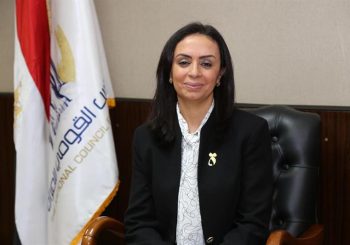Egyptian President Abdel Fattah Al-Sisi approved on Sunday night a new anti-terrorism law. The new law, which came weeks after President Sisi vowed harsher laws following the assassination of Egypt’s Prosecutor General Hisham Barakat, sets up new special courts and outlines tough measures against ‘terrorist activity’.
Below are 10 main points you should know about the new law.
1. The law gives greater legal protection to military and police officers
In cases of police and military violence, the law gives greater legal leeway for when this is seen to be part of their duty of defeating insurgencies.
2. Under the law, terrorism is defined as “any act that disturbs public order with violence.”
The law also allows any case falling under this bracket to be fast-tracked through special courts.
3. Establishing or leading a terrorist group will be punishable by death or a life sentence
It remains unclear whether time would be given for a group deemed to be a ‘terrorist group’ to disband before its members are arrested or charged with leading or establishing a terrorist group.
4. Joining a terrorist group will carry up to 10 years imprisonment
With the Muslim Brotherhood deemed a terrorist group in Egypt, this law may be applicable to its members.
5. Financing a terrorist group will be punishable by a life sentence (25 years in prison)
Since the ouster of former President Mohammed Morsi, Egypt’s authorities have seized dozens of charities, non-governmental organisations, businesses and more that have been accused of funding the group.
6. Inciting violence, including on the internet, will result in a five to seven year prison sentence
The exact definition of ‘inciting violence’ remains unclear. Some analysts have suggested this may cover calling for a demonstration. Others indicate this is aimed towards those that call for the targeting of security forces, infrastructure and other general acts of incitement, particularly those conducted by ISIS on Twitter.
7. Journalists contradicting official accounts of militant attacks can be fined between EGP 200,000 (app. $US 26,000) and EGP 500,000 (app. $US 64,000)
This was initially a two-year prison sentence, but following controversy, this measure was replaced by a fine. This particular clause caused concern amongst many journalists who fear that this could present an obstacle to them carrying out their professional work.
8. The legislation was criticized by human rights organisations and the US
Amnesty International expressed concern that the legislation compromises freedom of expression and rights of peaceful assembly and association. The group also criticized the definition of terrorism under the law as excessively broad.
Meanwhile, the US State Department warned the new law may amount to further human rights violations, but nevertheless expressed support for Egypt’s security and stability.
9. The new law was also criticized by some prominent figures in Egypt
The Journalists Syndicate believes the new law still unfairly targets journalists. Many argue that, while there is no longer the risk of imprisonment, a large fine for contradicting official accounts of militant attacks is too high of a burden on many of Egypt’s journalists.
Some prominent journalists, such as former imprisoned Al Jazeera journalist Mohamed Fahmy have levelled similar criticism towards the new law. For example, Fahmy, in an interview with Canadian news programme CTV News said that the new law means “it’s very clear that if you don’t toe the government line, you will be prosecuted.”
10. However, other figures in Egypt have praised the law as necessary
Some see the legislation as a necessary step to ensuring stability. For example, Mustafa Bakri, a journalist and former MP, tweeted his support for the law, saying that it necessarily included “deterrent procedures to face terrorism.”






Comments (25)
Literally nothing in this law is bad. I’m actually surprised it took us this long.
The only people criticizing it are journalists who are afraid they’re lies will land them in trouble.
Note for Egyptian Streets. –
Stop citing Amnesty International, its been proven that they have links to islamists and the MB.
https://www.rt.com/uk/312630-amnesty-international-muslim-brotherhood/
The very fact that ES has cited A I as a credible source just furthers the peoples view that the media are on the side of the terrorists. Major crackdown is needed.
such time egypt going through is a tough to deal with we must hv a powerful law to protect our citizen and the right of the people an secure our country.